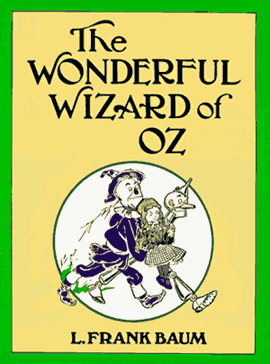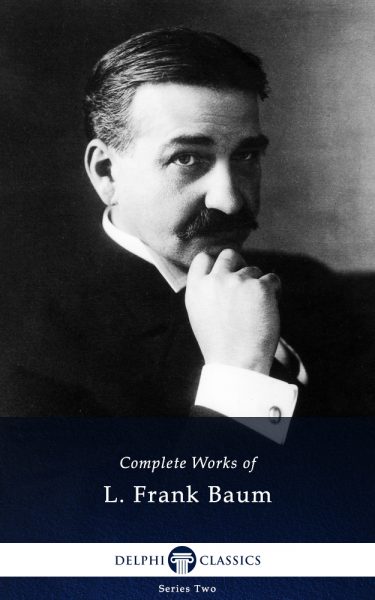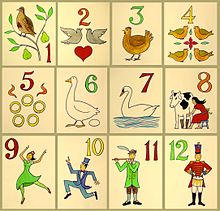The Wonderful Wizard Of Oz.

The Wonderful Wizard of Oz is an American children's novel written by author L. Frank Baum and illustrated by W. W. Denslow, originally published by the George M. Hill Company in Chicago on May 17, 1900. It has since been reprinted on numerous occasions, most often under the title The Wizard of Oz, which is the title of the popular 1902 Broadway musical as well as the iconic 1939 musical film adaptation.
The story chronicles the adventures of a young farm girl named Dorothy in the magical Land of Oz, after she and her pet dog Toto are swept away from their Kansas home by a cyclone.[nb 1] The novel is one of the best-known stories in American literature and has been widely translated. The Library of Congress has declared it "America's greatest and best-loved homegrown fairytale". Its groundbreaking success and the success of the Broadway musical adapted from the novel led Baum to write thirteen additional Oz books that serve as official sequels to the first story.
Baum dedicated the book "to my good friend & comrade, My Wife", Maud Gage Baum. In January 1901, George M. Hill Company completed printing the first edition, a total of 10,000 copies, which quickly sold out. The Wonderful Wizard of Oz sold three million copies by the time it entered the public domain in 1956.
L. Frank Baum.

Lyman Frank Baum (May 15, 1856 – May 6, 1919), better known by his pen name L. Frank Baum, was an American author chiefly known for his children's books, particularly The Wonderful Wizard of Oz. He wrote thirteen novel sequels, nine other fantasy novels, and a host of other works (55 novels in total, plus four "lost works", 83 short stories, over 200 poems, an unknown number of scripts,[1] and many miscellaneous writings), and made numerous attempts to bring his works to the stage and screen. His works anticipated such century-later commonplaces as television, augmented reality, laptop computers (The Master Key), wireless telephones (Tik-Tok of Oz), women in high risk, action-heavy occupations (Mary Louise in the Country), and the ubiquity of advertising on clothing (Aunt Jane's Nieces at Work).
Christmas Carol.

A Christmas carol (also called a noël, from the French word meaning "Christmas") is a carol (song or hymn) whose lyrics are on the theme of Christmas, and which is traditionally sung on Christmas itself or during the surrounding holiday season. Christmas carols may be regarded as a subset of the broader category of Christmas music.
Hamlet.

The Tragedy of Hamlet, Prince of Denmark, often shortened to Hamlet (/ˈhæmlᵻt/), is a tragedy written by William Shakespeare at an uncertain date between 1599 and 1602. Set in the Kingdom of Denmark, the play dramatises the revenge Prince Hamlet is called to wreak upon his uncle, Claudius, by the ghost of Hamlet's father, King Hamlet. Claudius had murdered his own brother and seized the throne, also marrying his deceased brother's widow. Hamlet is Shakespeare's longest play, and is ranked among the most powerful and influential tragedies in English literature, with a story capable of "seemingly endless retelling and adaptation by others".[1] The play likely was one of Shakespeare's most popular works during his lifetime,[2] and still ranks among his most performed, topping the performance list of the Royal Shakespeare Company and its predecessors in Stratford-upon-Avon since 1879.[3] It has inspired many other writers – from Johann Wolfgang von Goethe and Charles Dickens to James Joyce and Iris Murdoch – and has been described as "the world's most filmed story after Cinderella".[4] The story of Shakespeare's Hamlet was derived from the legend of Amleth, preserved by 13th-century chronicler Saxo Grammaticus in his Gesta Danorum, as subsequently retold by 16th-century scholar François de Belleforest. Shakespeare may also have drawn on an earlier (hypothetical) Elizabethan play known today as the Ur-Hamlet, though some scholars believe he himself wrote the Ur-Hamlet, later revising it to create the version of Hamlet we now have. He almost certainly wrote his version of the title role for his fellow actor, Richard Burbage, the leading tragedian of Shakespeare's time. In the 400 years since its inception, the role has been performed by numerous highly acclaimed actors in each successive century.
Twelfth Night.

Twelfth Night, or What You Will[1] is a comedy by William Shakespeare, believed to have been written around 1601–02 as a Twelfth Night's entertainment for the close of the Christmas season. The play centres on the twins Viola and Sebastian, who are separated in a shipwreck. Viola (who is disguised as a boy) falls in love with Duke Orsino, who in turn is in love with the Countess Olivia. Upon meeting Viola, Countess Olivia falls in love with her thinking she is a man. The play expanded on the musical interludes and riotous disorder expected of the occasion,[2] with plot elements drawn from the short story "Of Apollonius and Silla" by Barnabe Rich, based on a story by Matteo Bandello. The first recorded performance was on 2 February 1602, at Candlemas, the formal end of Christmastide in the year's calendar. The play was not published until its inclusion in the 1623 First Folio.
William Shakespeare.

William Shakespeare (/ˈʃeɪkspɪər/;[1] 26 April 1564 (baptised) – 23 April 1616)[nb 1] was an English poet, playwright, and actor, widely regarded as the greatest writer in the English language and the world's pre-eminent dramatist.[2] He is often called England's national poet, and the "Bard of Avon".[3][nb 2] His extant works, including collaborations, consist of approximately 38 plays,[nb 3] 154 sonnets, two long narrative poems, and a few other verses, some of uncertain authorship. His plays have been translated into every major living language and are performed more often than those of any other playwright.[4]
Shakespeare was born and brought up in Stratford-upon-Avon, Warwickshire. At the age of 18, he married Anne Hathaway, with whom he had three children: Susanna, and twins Hamnet and Judith. Sometime between 1585 and 1592, he began a successful career in London as an actor, writer, and part-owner of a playing company called the Lord Chamberlain's Men, later known as the King's Men. He appears to have retired to Stratford around 1613, at age 49, where he died three years later. Few records of Shakespeare's private life survive, which has stimulated considerable speculation about such matters as his physical appearance, sexuality, and religious beliefs and whether the works attributed to him were written by others.[5]
She's the Man.

She's the Man is a 2006 American romantic sport-comedy film directed by Andy Fickman, inspired by William Shakespeare's play Twelfth Night. The film stars Amanda Bynes, Channing Tatum, Laura Ramsey, and Vinnie Jones.
The film centers on teenager Viola Hastings who enters her brother's school in his place, pretending to be male, in order to play with the boys' soccer team after her team gets cut.
The Twelve Days of Christmas(Song).

"The Twelve Days of Christmas" is an English Christmas carol that enumerates in the manner of a cumulative song a series of increasingly grand gifts given on each of the twelve days of Christmas (the twelve days that comprise the Christmas season starting with Christmas Day).[1][2] The song, published in England in 1780 without music as a chant or rhyme, is thought to be French in origin.[3] "The Twelve Days of Christmas" has a Roud Folk Song Index number of 68. The tunes of collected versions vary. The standard tune now associated with it is derived from a 1909 arrangement of a traditional folk melody by English composer Frederic Austin, who first introduced the now familiar prolongation of the verse "five gold rings".
John Denver.

Henry John Deutschendorf Jr. (December 31, 1943 – October 12, 1997), known professionally as John Denver, was an American musician, singer-songwriter, record producer, activist, actor, and humanitarian, whose greatest commercial success was as a solo singer, starting in the 1970s. He was one of the most popular acoustic artists of the decade and one of its best-selling artists.[1] By 1974, he was firmly established as America's best-selling performer, and All Music has described Denver as "among the most beloved entertainers of his era".[2] After traveling and living in numerous locations while growing up in his military family,[3] Denver began his music career in folk music groups in the late 1960s. Throughout his life, Denver recorded and released approximately 300 songs, about 200 of which he composed, with total record sales of over 33 million.
John Denver&The Muppets- 12 days of Christmas.
Boxing Day.

Boxing Day is a holiday celebrated the day after Christmas Day. It originated in the United Kingdom, and is celebrated in a number of countries that previously formed part of the British Empire. Boxing Day is on 26 December, although the attached bank holiday or public holiday may take place either on that day or a day later.
In the liturgical calendar of Western Christianity, Boxing Day is the second day of Christmastide,[1] and also St. Stephen's Day.[2] In some European countries, notably Germany, Poland, Belgium, the Netherlands and the Nordic countries, 26 December is celebrated as a Second Christmas Day.
Epiphany.

Epiphany (ə-piff-ə-nee), also Theophany[1] or Three Kings' Day,[2] is a Christian feast day that celebrates the revelation of God in his Son as human in Jesus Christ. In Western Christianity, the feast commemorates principally (but not solely) the visit of the Magi to the Christ child, and thus Jesus' physical manifestation to the Gentiles.[3][4]Moreover, the feast of the Epiphany, in some Western Christian denominations, also initiates the liturgical season of Epiphanytide.[5][6] Eastern Christians, on the other hand, commemorate the baptism of Jesus in the Jordan River, seen as his manifestation to the world as the Son of God.
Visit of the Magi.
.jpg/260px-Magi_(1).jpg)
The Magi (/ˈmædʒaɪ/[1] or /ˈmeɪdʒaɪ/; singular: magus; Greek: μάγοι, magoi), also referred to as the (Three) Wise Men or (Three) Kings, were, in the Gospel of Matthew and Christian tradition, a group of distinguished foreigners who visited Jesus after his birth, bearing gifts of gold, frankincense and myrrh. They are regular figures in traditional accounts of the nativity celebrations of Christmas and are an important part of Christian tradition.
According to Matthew, the only one of the four Canonical gospels to mention the Magi, they came "from the east" to worship the "king of the Jews".[2] Although the account does not mention the number of Magi, the three gifts has led to the widespread assumption that there were three men.[3] In Eastern Christianity, especially the Syriac churches, the Magi often number twelve.[4]Their identification as kings in later Christian writings is probably linked to Psalms 72:11, "May all kings fall down before him".
沒有留言:
張貼留言